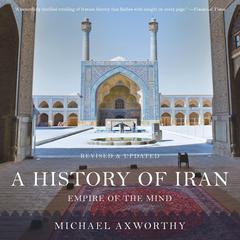 Play Audiobook Sample
Play Audiobook Sample
The Invention of Science: A New History of the Scientific Revolution Audiobook
 Play Audiobook Sample
Play Audiobook Sample
Quick Stats About this Audiobook
Total Audiobook Chapters:
Longest Chapter Length:
Shortest Chapter Length:
Average Chapter Length:
Audiobooks by this Author:
Publisher Description
A groundbreaking examination of the greatest event in history, the Scientific Revolution, and how it came to change the way we understand ourselves and our world
We live in a world transformed by scientific discovery. Yet today, science and its practitioners have come under political attack. In this fascinating history spanning continents and centuries, historian David Wootton offers a lively defense of science, revealing why the Scientific Revolution was truly the greatest event in our history.
The Invention of Science goes back five hundred years in time to chronicle this crucial transformation, exploring the factors that led to its birth and the people who made it happen. Wootton argues that the Scientific Revolution was actually five separate yet concurrent events that developed independently, but came to intersect and create a new world view. Here are the brilliant iconoclasts—Galileo, Copernicus, Brahe, Newton, and many more curious minds from across Europe—whose studies of the natural world challenged centuries of religious orthodoxy and ingrained superstition.
From gunpowder technology, the discovery of the new world, movable type printing, perspective painting, and the telescope to the practice of conducting experiments, the laws of nature, and the concept of the fact, Wootton shows how these discoveries codified into a social construct and a system of knowledge ideas of truth, knowledge, progress. Ultimately, he makes clear the link between scientific discovery and the rise of industrialization—and the birth of the modern world we know.
Download and start listening now!
“James Langton[’s] pleasant British accent; light, informal tone; and lively pace keep the audiobook from bogging down….His great strength is his ability to translate Wootton’s evident joy in his subject into an engaging, even friendly and upbeat, tone that still respects the seriousness of the material.”
— AudioFile
Quotes
-
“Perceptive, thought-provoking, deeply erudite, and beautifully written.”
— Nature -
“A fantastic revisionist history, an intellectual feat…It’s utterly refreshing to read a grand, whooping narrative that is also exhaustively researched. It will, I am certain, become a landmark in the discipline of the history of science.”
— Financial Times (London) -
“[Wootton’s] assembly and interpretation of evidence is painstaking and convincing, at least to the non-specialist…Because he is not shackled by the conventions of scientific writing, he can afford to be entertaining, and he is: The Invention of Science is full of countless interesting asides.”
— Times of Higher Education (London) -
“Builds a powerful, thoroughly fascinating argument ripe for debate.”
— Amazon.com -
“Vibrant and impressive…A marvel of expositional clarity.”
— Christian Science Monitor -
“Wootton hails science as a uniquely progressive force, one opening a truly reliable access to reality, not just one more socially constructed perspective. A bracing rediscovery of the marvel that is science.”
— Booklist (starred review) -
“A superbly lucid examination of a dramatic revolution in human thought that deserves a place on the shelf with Thomas Kuhn and David Deutsch.”
— Kirkus Reviews (starred review) -
“This substantive narrative of human progress is engaging and well constructed for the general science or history reader.”
— Publishers Weekly
Awards
-
Shortlisted for the 2016 Cundill Prize in Historical Literature
-
A Financial Times Best Book of the Year for 2015
-
An Amazon Best Book of the Month for December 2016
The Invention of Science Listener Reviews
- — Doug , 3/8/2023
About David Wootton
David Wootton is the Anniversary Professor at the University of York. His previous books include Paolo Sarpi, Bad Medicine, and Galileo. He gave the Raleigh Lectures at the British Academy in 2008, the Carlyle Lectures at the University of Oxford in 2014, and the Benedict Lecture at Boston University in 2014.
About James Langton
James Langton, an Earphones Award–winning narrator, trained as an actor at the Royal Scottish Academy of Music and Drama and later as a musician at the Guildhall School in London. He has worked in radio, film, and television, also appearing in theater in England and on Broadway. He is also a professional musician who led the internationally renowned Pasadena Roof Orchestra from 1996 to 2002.
























